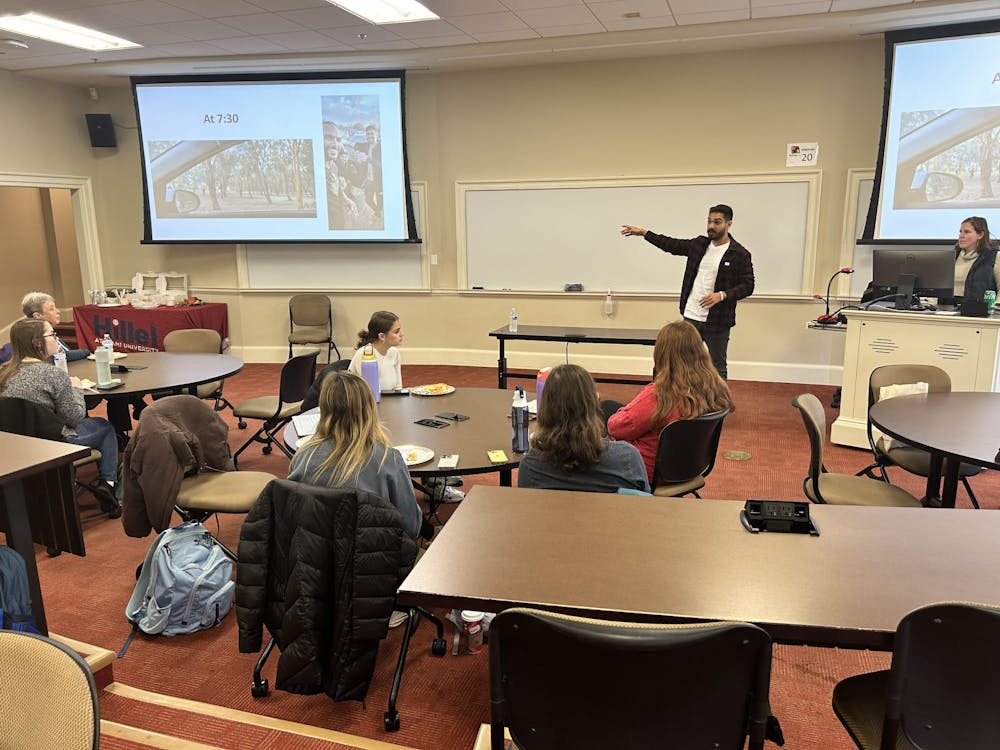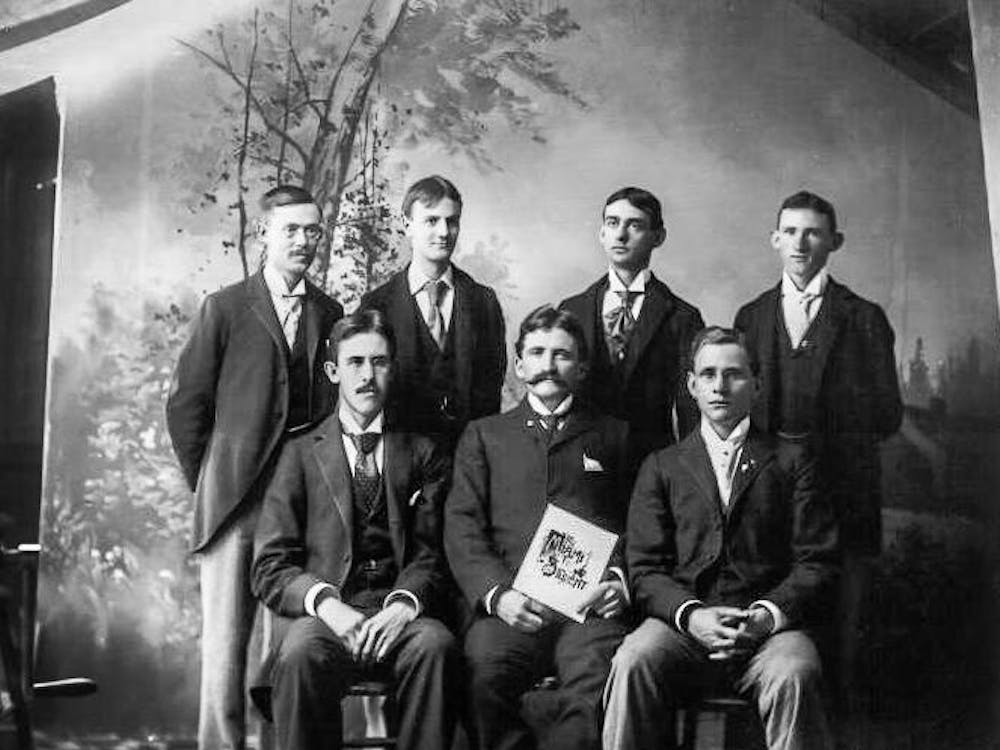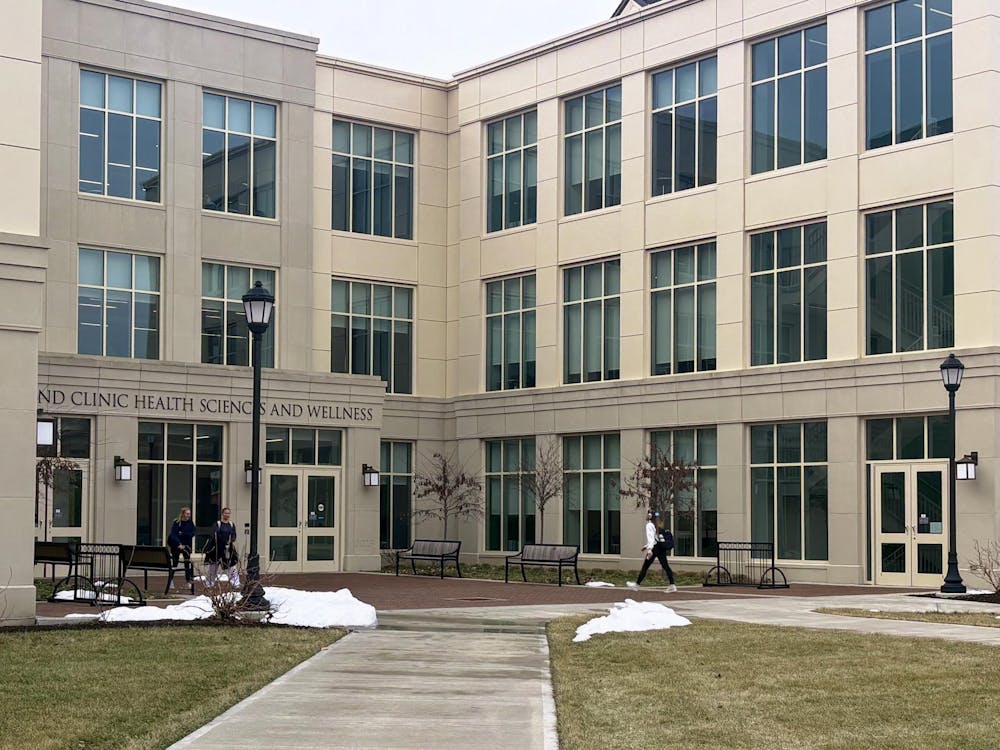Several months before the gates opened at Supernova, one of the biggest festivals in Israel, Rom El-Hai thought this would be the year he wouldn’t attend. The DJs weren’t ones he knew well and the ticket prices were too steep.
Nevertheless, the 29-year-old Israeli ended up getting a good deal on tickets; by volunteering there for four hours, he would receive a free ticket for the rest of the day.
Oct. 7 arrived, and El-Hai and his two friends were at Supernova dancing into the early morning. El-Hai said by 5:30 a.m. the floor was packed with almost 4,000 people from across the country. An hour and a half later, it was deserted.
He said there were people screaming and crying, but he wasn’t initially concerned with the rockets and bombs overhead. His first thought was “Oh no, the party’s over.”
The next day, Israel declared war on the Palestinian group Hamas.
The three of them made their way back to their cars while police officers told everyone to take their things and leave. For him it was very low stress. But his ease changed to confusion and then fear once he spotted armed police officers going into the forest.
“Why, if there is a rocket in the sky, what [can] the police officer do in the middle of the forest?” El-Hai thought at the time.
A car shot by beside them and crashed into three cars, getting stuck in one of them. The woman driving rolled out of the car with a gunshot wound. A police officer on scene told everyone to get out of their cars and run.
El-Hai only had the things in his pockets. At this point he and his friends had run into the woods but still did not know the severity of the situation, so they tried to get back to their car to figure out what to do to get out of there. However, they were stopped by the same police officer.
“‘Is this your car behind me? OK so you can’t go to the car,’” El-Hai recalled the officer saying to them. “‘... Which terrorists do you want to meet, those who come from the north or from the south?’”
They went back into the forest.
By 8:30 a.m. news outlets had picked up on the story, and he was getting phone calls from his family.
Enjoy what you're reading?
Signup for our newsletter
“I think to myself, ‘OK, I'm in the middle of terrorism. It's not a good time to speak with the family.’ But, also a thought, if I won't answer they’ll think I'm dead,” El-Hai said.
He told his loved ones he was safe, he was going to go with the military to a safer location, and a police officer was with him. This was a “total lie.”
By 9 a.m., he said they were hiding in bushes and under trees with the thought they’d only be there a couple minutes.
While hiding in the bushes, the trio realized the shooting was getting stronger, and a half hour later they were still hiding in the same spot. They were trying to figure out where to go when they joined with another group.
They came up with two rules: Don’t separate from each other and go east. While walking with the group, the shooting would pick up, and they’d run and then wait in the rising Israel heat with no water and no food.
El-Hai said during one of their sitting periods where they waited out the shootings that he noticed two military cars nearby, so someone in the group went over to get help but all they said was that “they can’t take them to a safe place but there are forces in the area, so you’ll be OK.”
They were also told to call the police to give them their location but while on the phone the officer was mostly silent after he said they were in the middle of the forest.
“[The officer on the phone] told us yes, there are forces there, a few minutes and someone will come … pray for your life,” El-Hai said.
At this point it had been hours since the three first escaped into the woods after partying with no food and no water. Under the continuous threat of rockets and gunshots El-Hai said the group broke into an abandoned car where they found warm mango juice and expensive alcohol “to toast with if they survive.”
After more walking in fear, they were rescued by police, who they asked to simply get them out of there.
“I don't know if it's coincidence, if it's karma, if it’s a miracle, but we had seven people in that moment,”El-Hai said. “The vehicle had exactly seven spots.”
Almost two months later, El-Hai visited Miami University to bring light to his experience. The discussion was hosted by Miami’s Hillel.
Jordana Sweeney, a senior speech pathology and audiology major and vice president of Hillel, had friends at the festival as well and wanted to get a more personal perspective of what happened other than what the news said.
“I feel empowered most of the time I hear the stories of how strong the Jewish community is and how strong the Jewish people are,” Sweeney said.
Eric Glassman, a junior finance major and president of Hillel, was also at the event to hear firsthand someone’s account of these tragedies.
“Seeing the pictures,” Glassman said, “hearing the emotion in somebody's voice like that tells a story more than words on paper.”




